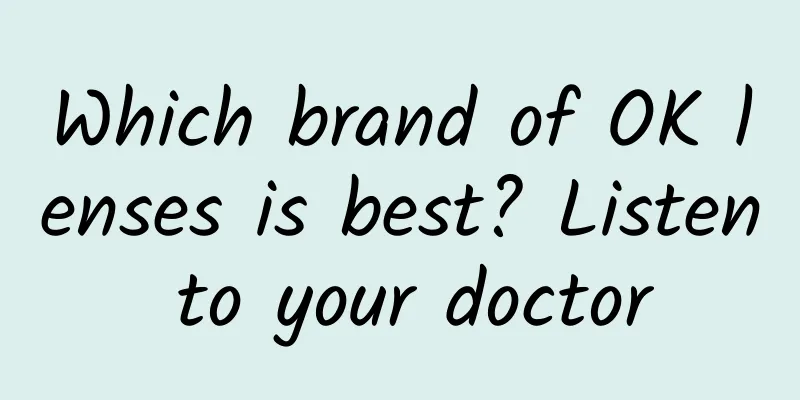How to formulate a treatment plan for elderly cancer patients? What should be paid attention to during chemotherapy?

|
Author: Sun Hong, Chief Physician, Peking University Cancer Hospital Reviewer: Yao Weihai, Chief Physician, Beijing Hospital of Traditional Chinese Medicine, Capital Medical University As we age, the body's metabolic rate will gradually slow down. Relatively speaking, the tumor may develop slowly in the elderly. However, the speed of tumor progression depends mainly on the pathological characteristics and primary site. In the process of tumor diagnosis, the primary site of the tumor is first determined, followed by the malignancy and pathological classification of the tumor, and then a treatment plan is formulated based on the tumor stage and the patient's physical condition. The physical conditions of the elderly vary, so treatment plans cannot be generalized. When seeing elderly cancer patients, the first thing to do is to diagnose the disease. The second thing to do is to conduct a comprehensive assessment: including the disease status, the malignancy of the tumor; the function of various organs in the body; whether the patient can take care of himself in daily life; whether he has other diseases such as hypertension and hyperlipidemia; the patient's nutritional status, etc. These are very important for doctors to formulate treatment plans and follow-up treatment. Of course, social and family support, family economic conditions, and care conditions are also issues to consider. After a comprehensive assessment, a treatment plan is formulated based on various factors. Figure 1 Original copyright image, no permission to reprint Elderly cancer patients are roughly divided into three categories after evaluation. In the first category, the patient is in good physical condition and can receive normal standardized treatment, while receiving assistance from traditional Chinese medicine; in the second category, the patient is unable to accept active anti-tumor treatment and cannot tolerate any treatment that is harmful to the body. In this case, it may be safer to receive treatment with traditional Chinese medicine alone, while also receiving symptomatic treatment, nutritional support, etc.; in the third category, the patient is somewhere in between the above two and can receive some conventional treatment, but cannot tolerate standard medication doses and standard treatment cycles. For this situation, individualized treatment should be adopted, such as individualized treatment that combines traditional Chinese and Western medicine. Therefore, when formulating treatment plans for elderly cancer patients, it is necessary to comprehensively consider multiple factors such as the patient's own condition, disease characteristics, and family situation, and formulate a personalized treatment plan based on this. Due to their own factors, elderly cancer patients sometimes cannot be treated according to standard chemotherapy regimens. First of all, when choosing chemotherapy drugs, try to choose drugs with mild adverse reactions to ensure efficacy while taking into account the control of adverse reactions. Second, for elderly patients with poor tolerance, the drug dosage may need to be reduced accordingly, such as reducing the standard dose by 20% or 25%, to ensure the successful completion of chemotherapy. Third, the choice of drug administration method. For elderly cancer patients, if conditions permit, oral medications should be given priority because they are relatively safe. However, for some gastrointestinal cancer patients with dysphagia, intravenous infusion is recommended for chemotherapy. Fourth, extend the treatment cycle. For example, chemotherapy is normally carried out every two weeks. For the elderly, it may be extended to three or four weeks depending on the specific physical recovery situation. Generally speaking, chemotherapy should be completed for at least two consecutive cycles. After one chemotherapy, the body should recover for a period of time before the next cycle of chemotherapy. This is safer for the elderly. At this stage, elderly cancer patients may not achieve the best results by relying solely on their own recovery. At this time, they can use Chinese medicine to support treatment. The main role of Chinese medicine is to strengthen the body, enhance immune function, reduce the adverse reactions of chemotherapy, help patients recover from chemotherapy damage as soon as possible, and ensure that the next chemotherapy cycle can be carried out on time and in the right amount, thereby ensuring the ultimate treatment effect. Figure 2 Original copyright image, no permission to reprint What should elderly cancer patients pay attention to in their diet during chemotherapy? During chemotherapy, first of all, you should eat some food that is easier to digest. Most chemotherapy drugs will have a certain impact on gastrointestinal function, weakening gastrointestinal function. Soft and easily digestible food is easier for the gastrointestinal tract to absorb and metabolize. Second, you should eat relatively fresh vegetables and fruits. Fresh fruits and vegetables are rich in beta-carotene, flavonoids, dietary fiber, trace elements, etc., while fruits and vegetables that have been stored for a long time have problems such as reduced nutrition and microbial contamination. Third, you need to eat foods that are high in energy and rich in nutrients. Because chemotherapy can cause damage, the body needs a certain amount of energy to repair, so you should eat some high-energy, high-protein foods. High-energy foods such as meat can be made into a form that is easy to digest, such as minced meat porridge. If you really have no appetite and cannot eat, you can use Chinese medicine to regulate gastrointestinal function, make the gastrointestinal function better, and increase the amount of food you eat, because the final nutrients need to be obtained from food. |
Recommend
What is a four-leaf clover? What is the growing environment of a four-leaf clover?
I believe everyone is familiar with the four-leaf...
Brown discharge during pregnancy
The female body is very complex, especially after...
What are the common methods of cardiac interventional treatment in cardiology?
Cardiology interventional therapy is one of the i...
Symptoms and treatment of menopause in women
When female friends reach a certain age, generall...
Why does iced tea make you thirstier the more you drink it? Can you still drink iced tea that has been left overnight?
Iced black tea has the functions and effects of p...
What does it mean if I bleed again a few days after my period?
I believe that in daily life, many female friends...
What is the cause of itchy small bumps on the vulva?
The pace of life for modern people is getting fas...
What is the cause of women's inverted nipples and how to treat them
Nowadays, women's breasts are a symbol of bea...
Home rehabilitation for elderly people with dementia
It is estimated that by 2050, the number of peopl...
Why is my period suddenly delayed?
Women may have experienced the symptom of sudden ...
Uncover 10 private questions about women's breasts
I believe that many women want to have a pair of ...
Symptoms of vitamin D deficiency in women
Vitamin D is a very important vitamin in the huma...
What to do if you have back pain at 36 weeks of pregnancy
As the fetus continues to grow, the burden on pre...
The due date has arrived. Squat down and give birth quickly.
I often see that the sisters around me who were d...









